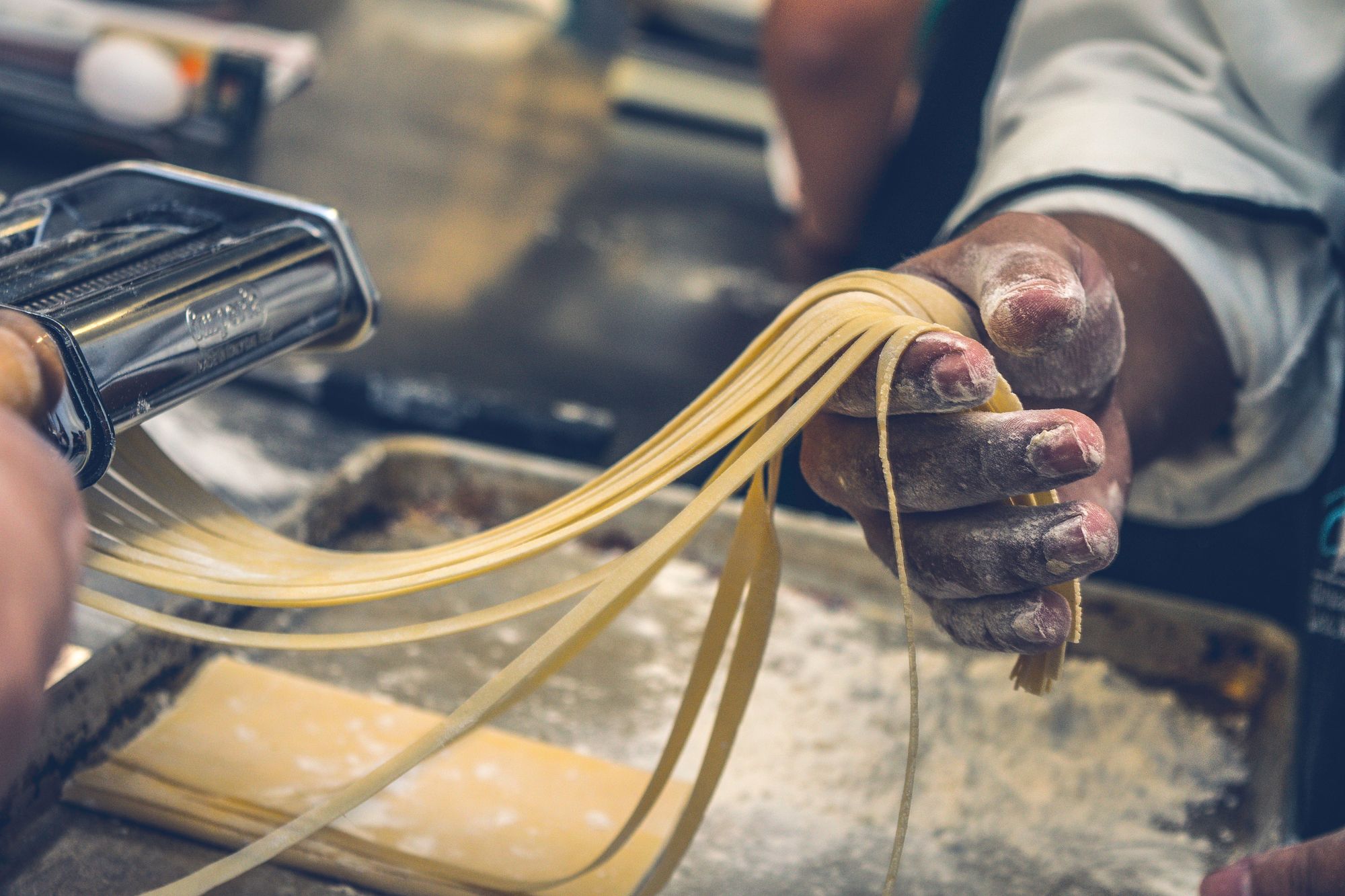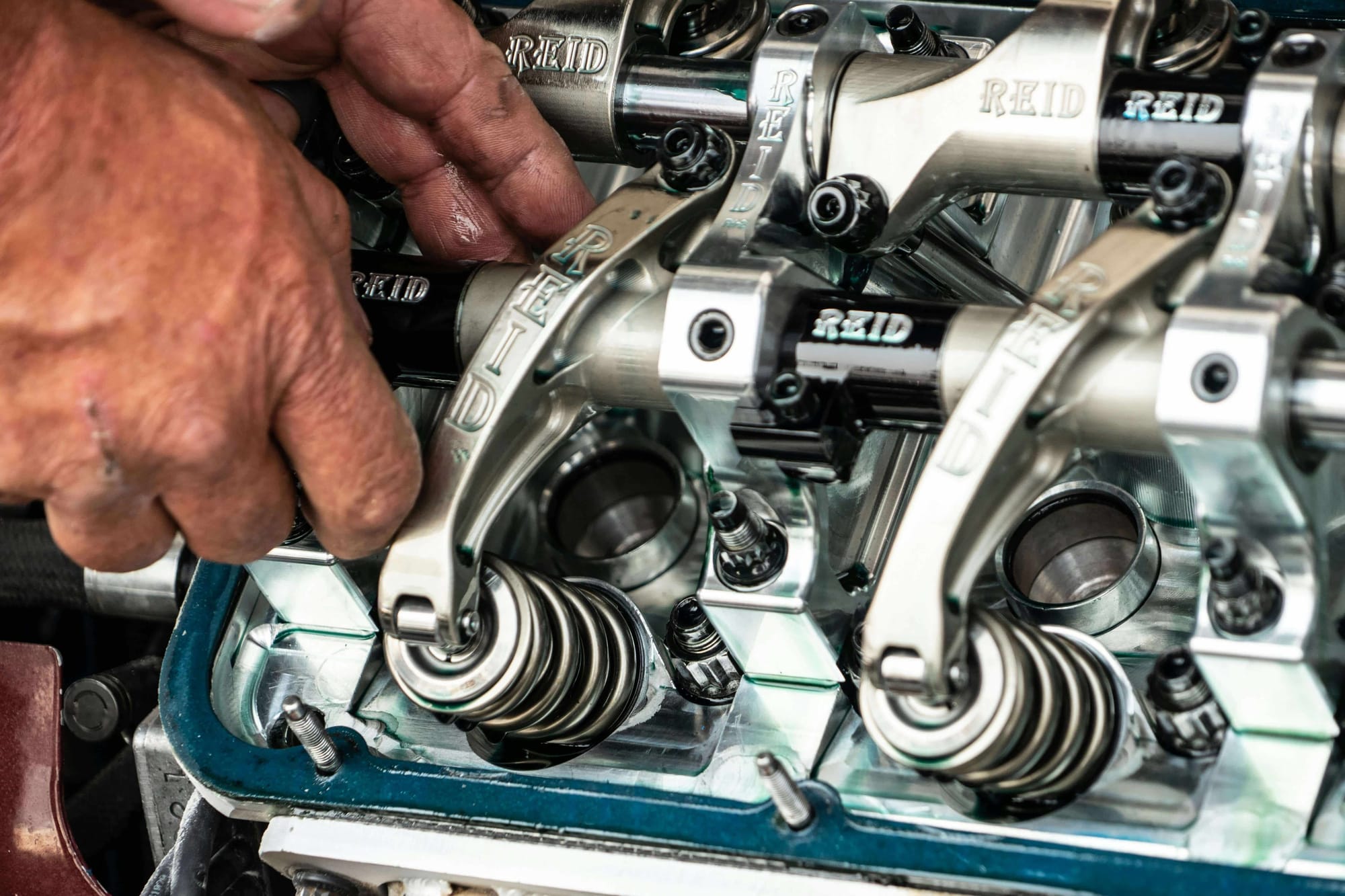Food manufacturing is an important part of the food industry and has been around for centuries. From the early days of milling grain to modern-day production lines, technology has played a major role in the food manufacturing industry.

Technology has significantly improved the efficiency and quality of food production, and in the past few decades, it has revolutionized the sector. Today, food manufacturing is one of the most advanced and sophisticated industries in the world. With new technologies and automation, the food industry has become much more efficient and productive, allowing companies to produce high-quality food products with greater speed and accuracy.
This article covers the following:
- Overview of Food Manufacturing
- Food Manufacturing Regulations
- Food Processing and Preservation Techniques.
- Challenges of Food Manufacturing
- Latest Innovations in Food Manufacturing
- Food Manufacturing Equipment
- Food Manufacturing Trends
Overview of Food Manufacturing
Food manufacturing is one of the most important industries in the world, providing us with the nourishment we need to survive. From the simple process of grinding grains to make flour to the highly complex production of ready-to-eat meals, food manufacturing is essential in providing a safe and nutritious food supply.
The process of food manufacturing involves a wide range of stages, including the procurement of raw materials, processing, packaging, and distribution. The manufacturing process includes several steps, such as cleaning, sorting, chopping, grinding, mixing, blending, boiling, and pasteurizing.
In order to ensure the quality of the finished product, manufacturers must follow strict quality control procedures and regulations. In order to succeed in food manufacturing, manufacturers must have a strong knowledge of food safety, quality assurance, and product development.
They must also be familiar with the latest technology and equipment used in the food processing industry. Additionally, manufacturers must be well-versed in the regulations governing food safety and quality assurance, as these regulations vary from country to country.
Food manufacturing is an ever-evolving industry, and manufacturers must keep up with the changing trends in order to remain competitive. It is important for manufacturers to stay up-to-date on the latest technological advances, as well as changes in consumer preferences and regulations.
The future of food manufacturing is bright as the demand for safe, healthy, and nutritious food continues to increase. With the right knowledge, expertise, and equipment, food manufacturers can remain competitive in the ever-changing world of food manufacturing.
Food Manufacturing Regulations
Food manufacturing regulations are essential for ensuring the safety of the food we consume. They are designed to protect public health by ensuring food is of high quality and safe to eat.
The regulations cover many aspects of the food manufacturing process, from the ingredients used to the labeling, packaging, and storage of the finished product. In the United States, the Food and Drug Administration (FDA) is the primary agency responsible for regulating food manufacturing processes.
The FDA requires that food manufacturers follow Good Manufacturing Practices (GMPs) to ensure the safety and quality of their products. These GMPs cover areas such as sanitation, personnel hygiene, equipment, and maintenance.
Food manufacturers must also meet certain labeling requirements. This includes ensuring all food packaging, and labeling are accurate, properly labeled, and compliant with relevant regulations.
This includes listing all ingredients and nutrition information, as well as any potential allergens and food safety warnings. Food manufacturers are also required to comply with Hazard Analysis and Critical Control Point (HACCP) regulations.
This system is designed to identify potential food safety hazards and ensure they are controlled throughout the food manufacturing process. This includes identifying potential microbial, chemical, physical, and allergen hazards and implementing procedures to control them.
Finally, food manufacturers are responsible for keeping records of their processes and products. This includes keeping track of all ingredients used, dates of production and expiration, and other relevant information.
This is important for ensuring that food products meet the required safety standards and that they can be traced in case of a recall. Food manufacturing regulations are essential for ensuring the safety and quality of the food we consume. They provide a framework for food manufacturers to follow, helping to ensure that the food we eat is safe and of high quality.
Food Processing and Preservation Techniques
When it comes to food manufacturing, processing and preservation techniques play a major role in ensuring the products stay safe and edible for consumers. In the past, traditional methods of food processing and preservation were used to maintain the freshness of food and prevent spoilage.
Today, modern techniques are used to ensure food safety, extend shelf life, and improve the quality of food products. Processing techniques are used to reduce or eliminate bacteria, fungi, and other micro-organisms that can cause food contamination and spoilage.
Common techniques used in food processing include pasteurization, irradiation, and high-pressure processing. Pasteurization involves heating the food to a specific temperature to kill micro-organisms and reduce spoilage.
Irradiation involves exposing food to high-energy radiation to kill pathogens and extend shelf life. High-pressure processing is a non-thermal technique used to eliminate bacteria and increase shelf life.
Food preservation techniques are used to extend the shelf life of food products. Common techniques used in food preservation include canning, freezing, dehydration, pickling, and fermentation.
Canning involves sealing food in an airtight container and boiling it to kill micro-organisms and preserve the food. Freezing involves storing food at a temperature below freezing to prevent the growth of micro-organisms.
Dehydration involves removing water from food, which prevents the growth of micro-organisms and reduces spoilage. Pickling involves soaking foods in a solution containing vinegar, salt, and other ingredients to inhibit the growth of micro-organisms.
Fermentation involves using micro-organisms to break down food and prevent spoilage. Food manufacturers use a variety of processing and preservation techniques to ensure their products are safe and of high quality.
These techniques ensure food safety, extend shelf life, and improve the quality of food products. By employing these techniques, food manufacturers can produce safe, nutritious, and high-quality products that are enjoyed by consumers.
Challenges of Food Manufacturing
Food manufacturing has become a critical component of the global food supply chain, and it faces many challenges. From supply chain complexity to food safety regulations, food manufacturers must be prepared to tackle a range of issues in order to remain competitive and successful. Here are some of the key challenges facing food manufacturers today.
Supply Chain Complexity
Food manufacturers must manage a complex supply chain that includes sourcing raw materials, production, packaging, distribution, and delivery. With multiple points of access, food manufacturers must ensure that all components of the supply chain are managed effectively and efficiently.
Food Safety Regulations
Food safety is a top priority for food manufacturers. Governments and regulatory bodies around the world have created strict guidelines and standards for food safety to ensure that food is safe for consumers. Food manufacturers must adhere to these regulations in order to remain in compliance.
Cost Management
Food manufacturers must manage their costs in order to remain competitive. This includes looking for efficient ways to source raw materials, managing production costs, and controlling overhead costs.
Technology Adoption
Technology has become a critical component of the food manufacturing industry. Food manufacturers must use technology to optimize production, manage supply chains, and improve food safety.
Environmental Sustainability
Food manufacturers must also focus on environmental sustainability. This includes reducing emissions and waste, improving energy efficiency, and sourcing sustainable materials.
These are just some of the challenges that food manufacturers face. By staying up to date on industry trends and adapting to changes in the industry, food manufacturers can ensure they remain competitive and successful.
Latest Innovations in Food Manufacturing
Food manufacturing is a rapidly changing industry. As consumers become more health-conscious and demand higher-quality food products, food manufacturers must stay ahead of the curve by implementing innovative technologies and processes. In recent years, there have been several advances in food manufacturing that have helped manufacturers create safer and more nutritious foods. Here are the latest innovations in food manufacturing:
Automation and Robotics
Automated manufacturing processes are becoming increasingly popular in the food manufacturing industry as they reduce costs and improve product consistency. Robotic arms and automated conveyor systems are being used in food production lines to automate the packaging, sorting, and inspection of food products. This technology allows manufacturers to reduce labor costs and increase production efficiency.
3D Printing
3D printing is a revolutionary technology that is being used in the food industry to produce complex shapes and intricate designs. 3D printing enables manufacturers to create custom shapes and sizes of food products, which can help them stand out from the competition.
For example, 3D printing is used to create custom shapes of chocolates and candies, as well as intricate designs in cakes, bread, and pastries.
Sustainable Packaging
Sustainable packaging is becoming increasingly important for food manufacturers. Eco-friendly packaging materials such as biodegradable plastics, recycled paper and cardboard, and compostable materials are being used in food packaging to reduce the amount of waste generated.
Smart Labeling
Smart labeling is a technology that uses RFID tags or barcodes to track and trace food products from farm to store. This technology helps manufacturers monitor food quality and safety, as well as reduce food waste.
Food Safety
Food safety is a top priority for food manufacturers. New technologies such as pathogen detection systems and food irradiation are being used to reduce the risk of foodborne illnesses. These are just a few of the latest innovations in food manufacturing. As the industry continues to evolve, manufacturers must stay ahead of the curve by adopting new technologies and processes to stay competitive.
Food Manufacturing Trends
Food manufacturing is an ever-evolving industry with trends and advances in technology continually changing the way we produce, package, and store food. As a result, the food manufacturing industry is constantly innovating to meet the demands of consumers for more convenient, healthier, and tastier options. Here are some of the most popular trends in food manufacturing today.
Automation
Automation is becoming increasingly popular in food manufacturing as it reduces labor costs and increases efficiency. This can be seen in the increased use of robots and automated systems in the manufacturing process. Automation can also help reduce product waste and contamination while ensuring consistency and quality.
Sustainability
Consumers are increasingly demanding more sustainable food products and practices. This has led to a rise in the number of companies that are committed to sustainability and are investing in green manufacturing processes and packaging solutions. Many companies are also looking for ways to reduce their carbon footprint and create a more eco-friendly production system.
Traceability
Consumers are becoming more aware of the origin of their food and the ingredients used to produce it. As a result, food manufacturers are investing in traceability systems that allow them to track the entire production process, from farm to plate. This helps ensure food safety and quality, as well as provides transparency to consumers.
Health and Nutrition
Consumers are looking for healthier food choices and more nutritious food options. As a result, food manufacturers are reformulating their products to include healthier ingredients while still maintaining the same taste and appearance. Companies are also looking for ways to reduce sugar and salt levels in their products.
Packaging
Consumers are becoming more aware of food waste and the impact of packaging on the environment. As a result, food manufacturers are investing in packaging solutions that are more sustainable and reduce waste. This includes using recyclable or compostable materials, as well as reducing the amount of packaging material, and using lightweight materials to reduce transportation costs.
These are just a few of the trends in food manufacturing that are changing the industry. As consumers become more aware of their food and their impact on the environment, food manufacturers must continue to innovate and find ways to meet their demands.
How Can Deskera Assist You?
As a manufacturer, you must keep track of your inventory stock. The condition of your inventory has a direct impact on production planning. It also has a direct impact on people and machinery use and capacity utilization.
Deskera MRP is the one tool that lets you do all of the above. With Deskera, you can:
- Control production schedules
- Compile a Bill of Materials
- Produce thorough reports
- Make your dashboard
Deskera ERP is a complete solution that allows you to manage suppliers and track supply chain activity in real-time. It also allows you to streamline a range of other company functions.
Deskera Books allows you to manage your accounts and finances better. It helps maintain good accounting standards by automating billing, invoicing, and payment processing tasks.
Deskera CRM is a powerful tool that organizes your sales and helps you close deals rapidly. It enables you to perform crucial tasks like lead generation via email and gives you a comprehensive view of your sales funnel.
Deskera People is a straightforward application for centralizing your human resource management activities. Not only does the technology expedite payroll processing, but it also helps you to handle all other operations such as overtime, benefits, bonuses, training programs, and much more.
Key Takeaways:
- The future of food manufacturing is bright as the demand for safe, healthy, and nutritious food continues to increase.
- Automated manufacturing processes are becoming increasingly popular in the food manufacturing industry as they reduce costs and improve product consistency.
- 3D printing is a revolutionary technology that is being used in the food industry to produce complex shapes and intricate designs.
- Sustainable packaging is becoming increasingly important for food manufacturers.
- Sustainable packaging is becoming increasingly important for food manufacturers.






